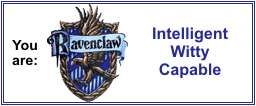This was never one of my favourite books. Even if I did grow up being required to read it. The language is so old. It is Elizabethan English. I do not live in the Elizabethan era. I wish I did though, because it was certainly a much more interesting era than today. If I ever HAD to read any Bible, I would choose the New International (NIV) Version. It's in modern English.
The Good Book
Like Vladimir Nabokov, the Almighty did his best writing in English. His Hebrew and German (I mean He, not Nabokov) were also excellent, but His Greek and Latin were a bit sloppy. Still, no one's perfect. The King James Version (KJV) of the Bible of 1611 (also called the Authorized Version) was a new creation. If it still is the best rendering of the Hebrew and Greek originals in English, it nevertheless changed utterly the way the Tanakh (the Hebrew scriptures) and the so-called New Testament are read. The magisterial language of the KJV loses in its solemnity the Hebrew puns and word games of the Tanakh and covers up the verbal messiness of the Greek New Testament.
By force of the English language at its strongest, the KJV makes the two testaments into a single story. This merging has theological implications that many find uncomfortable (understandably, Jewish readers do not favour the union). However, one can savour the single sweeping literary text without having to buy into the idea that the New Testament supersedes the "Old." The Good Book is a very good book indeed.
More even than William Shakespeare, the KJV sculpted the English language and thus the way anyone who uses English thinks. It is also the language's largest source ever assembled of metaphors, clichés and plots waiting to be cribbed. You cannot read a 19th-century Canadian parliamentary debate or replay a stump speech by any 20th-century U.S. presidential candidate or go through movie channels on your TV set tonight without running into words, phrases, allusions and narrative turns that are straight from the scriptures. The bible-belting in Pulp Fiction and the constant cinematic threats of Armageddon come from the same source.
It is only justice that the King James Version of the Bible is so often plagiarized, for in itself the KJV is the biggest piece of plagiarism in English-language culture. Roughly 90 per cent of the New Testament of 1611 was lifted from the work of William Tyndale. Before his martyrdom, in 1536, he had managed to translate the entire New Testament from Greek while on the run from church authorities, and he had made a good start on the Hebrew scriptures. These were assimilated into the Geneva Bible, the first complete English-language Bible widely available to the common people. The committee set up by James VI of Scotland (who became James I of England in 1603) knew a good thing when they saw it and stole most of it fair and square.
Of course, the KJV is not beyond criticism, the most telling being that in many parts it is better than are the originals. The high-pitched ranting of the minor prophets and the blood-drenched discourse of the Book of Revelation are converted from being psychiatrically diagnostic into searing and radical literature. Several more recent versions sort out translation errors, but most are either tone-deaf (the Revised Standard Version of the 1880s is particularly musicless), tools of colporteurs (do they really need to hear Jesus in Scouse?) or collections of niggles by academics (who, quite realistically, understand that even biblical scholars must publish or perish). Robert Alter, the one modern translator to equal in power the KJV in the portions of the Tanakh that he has completed, rightly comments that "nothing traduces the power of the original more egregiously than the nonstyle cultivated by the sundry modern versions."
"The greatest vehicle of mass literacy in the English-speaking world has been the King James Bible," Robert Stone states. "It has been the great primer." He is right and here he leads us to recognize one of the most stealthy cases of social class and intergenerational cultural warfare in the last half-century. It has confidently been asserted by mega-church preachers and professors of pastoral theology that "everyday people" and "today's youth" cannot understand the language of the KJV. Of course they can. The members of a generation that can master a new form of English that is communicated mostly through their thumbs can certainly get its head around the difference between "thee," "thou" and "thy." If they are encouraged to read, mark, learn and inwardly digest the most widescreen, soaring, magical, brutal, depressing, elevating and sublime document in our language, they will be forever grateful and we all will be the better for it.
The KJV is not only the standard by which all English-language literature must be judged, it is also the source of the Prime Critical Directive, the ultimate statement of authorial responsibility: "Though I speak with the tongue of men and of angels, and have not charity, I am become as sounding brass, or a tinkling symbol." No writer escapes that.
Subscribe to:
Post Comments (Atom)









1 comment:
Oh, I love the KJV. It's the only decent thing ever done by a committee but I have to say, "pychiatrically diagnostic" had me snorting with laughter. Too true!
Post a Comment